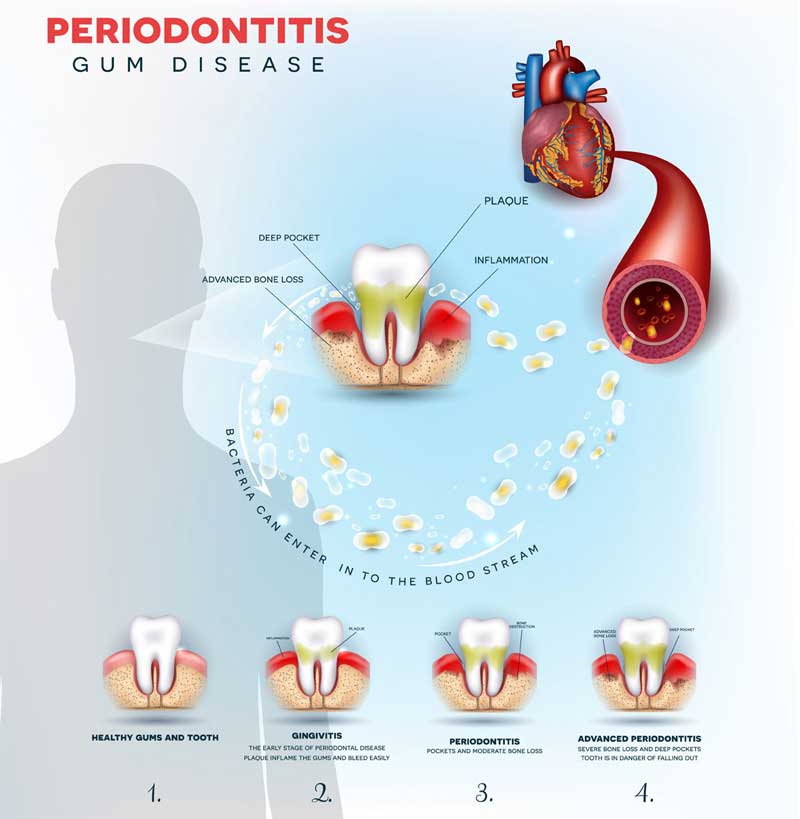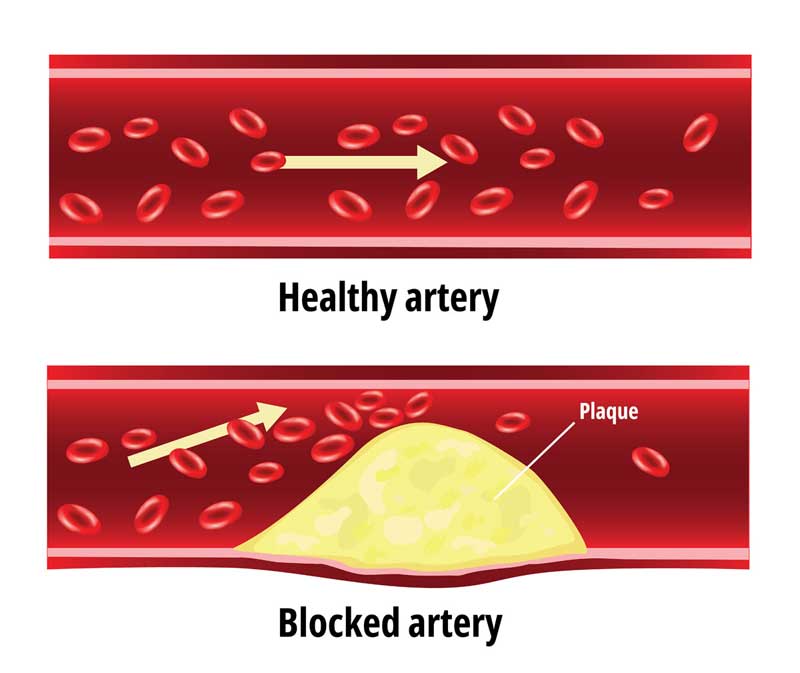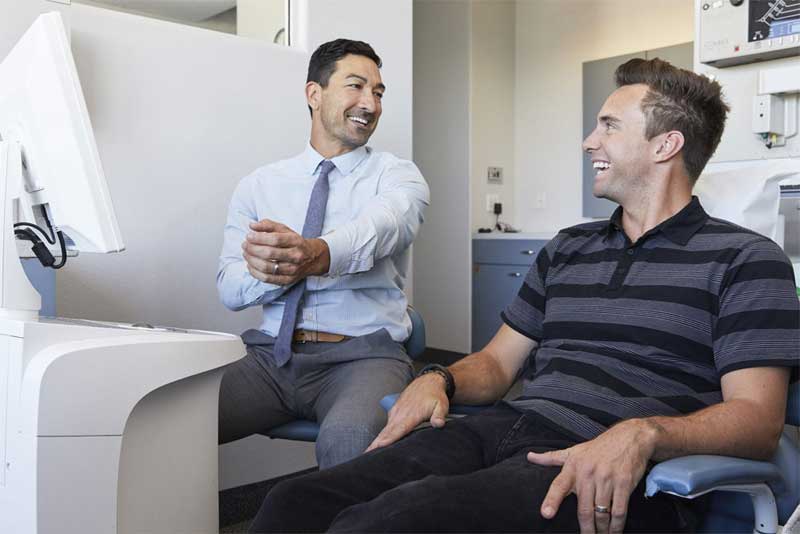Could Periodontal Disease Be Putting Your Heart Health at Risk?
Researchers have been assessing a potential connection between periodontal (gum) disease and cardiovascular disease for decades. Periodontal disease begins with the build up of a sticky, bacteria-ridden plaque substance on the teeth. Heart disease starts with the build up of a different type of plaque comprised of cholesterol, fat, calcium, and other blood-based substances in the arteries.
Although the two conditions seem unrelated (different plaque, different body parts), doctors, dentists, and researchers couldn’t help but notice an apparent correlation between the two. Individuals with periodontal disease have two or three times the risk of suffering a stroke, heart attack, or other serious cardiovascular event than individuals with healthy gums.
Of course, lots of people with periodontal disease do not have cardiovascular disease and vice versa. The link between the two, however, can no longer be denied; simply too much research indicates otherwise.


What Research Says about the Link Between Periodontal Disease and Cardiovascular Disease
- A National Institutes of Health medical review of studies on the subject concluded a link between the two exists. They concluded that periodontal disease increases an individual’s risk of heart disease by 20%, but also stated that more research is needed to fully understand the relationship.
- A Swedish study found : Significantly more heart attack patients (43%) had gum disease compared to healthy individuals (33%). Individuals with periodontal disease were 49% more likely to suffer a heart attack than those without gum disease.
- A 2014 study followed individuals diagnosed with both cardiovascular and periodontal diseases. The study found that individuals who received adequate care for their periodontal disease incurred significantly lower (10% to 40%) medical costs related to cardiovascular disease compared to individuals who did not receive proper treatment for periodontal disease.
How Are the Two Conditions Related?
More research is needed to understand exactly how or why periodontal disease and cardiovascular disease are linked. Although it is not certain, some suspect the relationship between gum disease and cardiovascular disease might have something to do with the inflammation-causing bacteria contained in dental plaque. These bacteria inflame the gums and connective tissues surrounding the teeth. The oral-based bacteria can then enter the bloodstream during normal, daily activities like chewing food, brushing, and flossing. The bacteria then travels throughout the bloodstream, causing inflammation in several areas of the body, including the arteries.


How Can You Protect the Health of Your Gums and Heart?
Practicing good oral hygiene and getting regular dental cleanings and exams is the best way to prevent gum disease. If you are diagnosed with periodontal disease, Dr. Schaffer will discuss your treatment options to help you manage the condition, safeguarding both your teeth and your heart.


